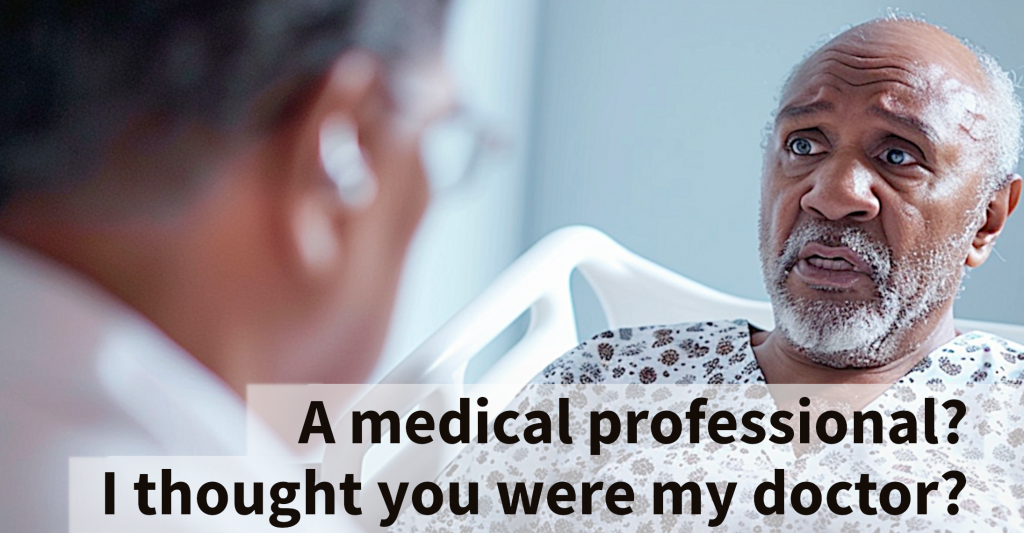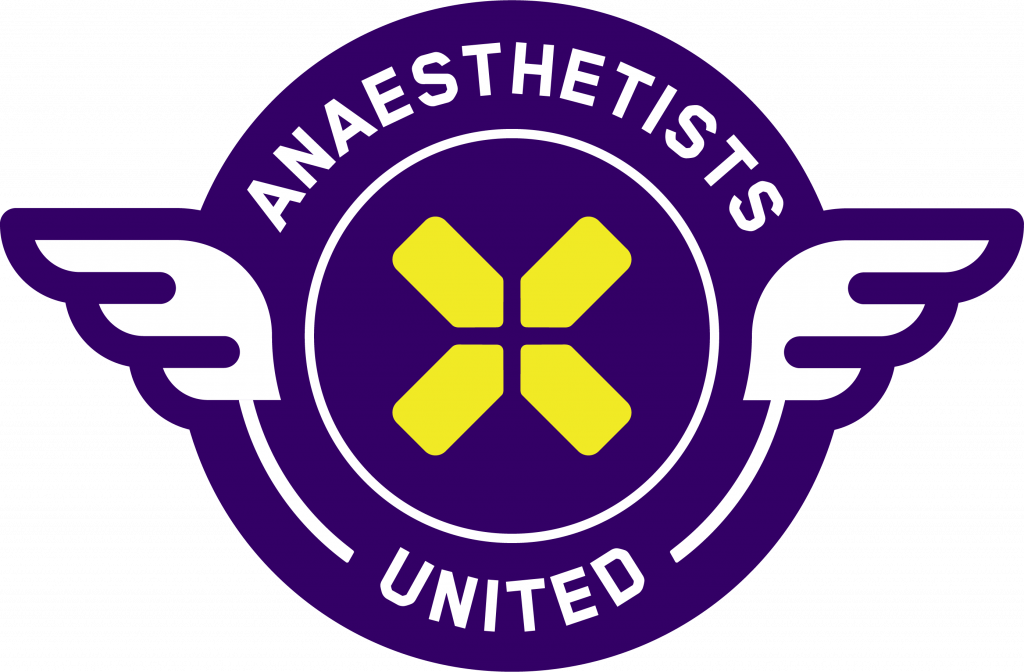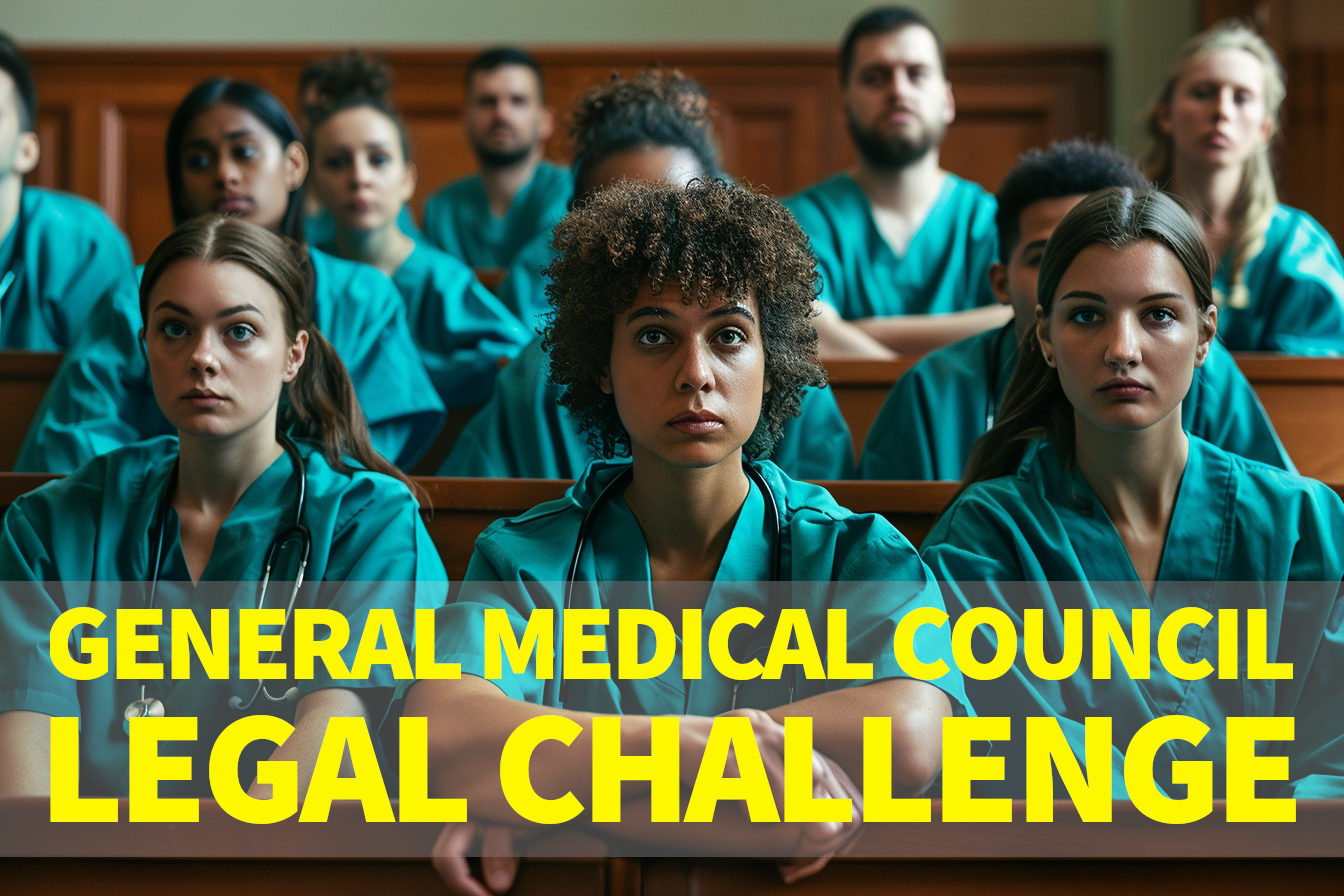The General Medical Council was given powers under the Medical Act 1983 to regulate doctors and protect the public from those falsely claiming to be qualified when they are not. But instead, we have watched with dismay as doctors are quietly being replaced by ‘Associates’. Worse still, the GMC appears to be actively encouraging this.
We’ve listened to empty reassurances from the establishment, as the lines between the two professions have been systematically blurred.
We think patients deserve better; they should be cared for by doctors when necessary, should know who is and is not a doctor, and there should be separate regulation underpinning this.
And we’re ready to take action.
We need to raise funds. Please donate as much as you can to our Crowdjustice page.
What are Physician/Anaesthesia Associates?
Physician Associates and Anaesthesia Associates are a new profession. They are not doctors, they do not have the same training as doctors, but are being permitted to take on many of the roles doctors have traditionally fulfilled. The press have reported on troubling cases. And the General Medical Council, the body legally responsible for doctors’ regulation, has now been given the responsibility of regulating Physician/Anaesthesia Associates too.
(To make it more confusing, an “Associate Specialist” is an experienced doctor.)
So how have they blurred the distinction between Doctors and Associates
Parliament originally made it clear that Associates were to be kept entirely separate from doctors. There should never have been any ambiguity as to who or what a health worker is. But instead, the GMC has made the situation vague and indistinct.
The biggest worry is that the GMC have steadfastly refused to say what an Associate can, or cannot, do to support patients. The precise term for this is their ‘scope of practice’. The GMC have even refused to hold a consultation on it, despite a statutory requirement for them to do so.
So it is left entirely down to market forces to determine scope. This favours using Physician/Anaesthesia Associates as doctor replacements. There is no good reason for this ambiguity: in comparison, the General Dental Council has strict rules on the difference between dentists, hygienists, technicians and the other professions that they regulate.
Worse still, the GMC has confusingly started to use the term ‘Medical Professionals’ to encompass both doctors and Associates. It has even issued guidance on ‘Good Medical Practice’ for both doctors and Associates to share.
What is the legal basis for the challenge?
We believe the GMC is simply ignoring the law on professional regulation.
You can read our legal case in more detail here.
What are we trying to achieve?
- Clear and enforceable guidance from the GMC on the ‘privileges of members’ admitted to Associate practice, defining what they can and cannot do (their Scope of Practice) and clear rules on levels of supervision. This can be delegated to the appropriately-empowered Medical College/Faculty.
- The current ‘Good Medical Practice’ guidance replaced by two separate sets of guidance for the two separate professions, and
- An end to the use of the ambiguous term ‘Medical Professionals’ used to describe two separate groups misleadingly.
What have we done so far?
On 26th March we wrote to the GMC setting out our case. In their reply they answered some of our points but completely failed to address others. We feel that the only route left open to us is a legal one, and we have had expressions of interest from some top lawyers in the field.
How much money do we need?
We have been quoted the sum of £15,000 to cover the initial costs of a brief and opinion.
We are working with John Halford of Bindmans LLP, a public law solicitor with experience in the regulatory framework on protected titles, and Tom de la Mare KC of Blackstones. Both of these are highly regarded and respected in their expertise; we need to work with the best.
It is quite possible that a strongly-worded representations from top lawyers will be sufficiently forceful to push the GMC into accepting our proposals. But if not, then the next step is court action. We don’t yet know how much that will cost, although we do know that the GMC has a reputation for spending large sums of public money on defending themselves.
Who are we?
Anaesthetists United are a group of Anaesthetists of all grades.
Anaesthetists have a reputation for getting things done. We are the group that convened the Extraordinary General Meeting of the Royal College of Anaesthetists, which led to a sea change in the way the medical profession, and the public, have looked at the whole issue of Associates. You can read more about us as a group, and details of our core members, here. And find more by joining our Discord.
The GMC was set up so that the public could tell who was and was not a doctor. That aim is now being undermined. We urge doctors and patients to come together and fund a legal challenge to restore faith and ensure that patient safety is never compromised.
Thank you.


